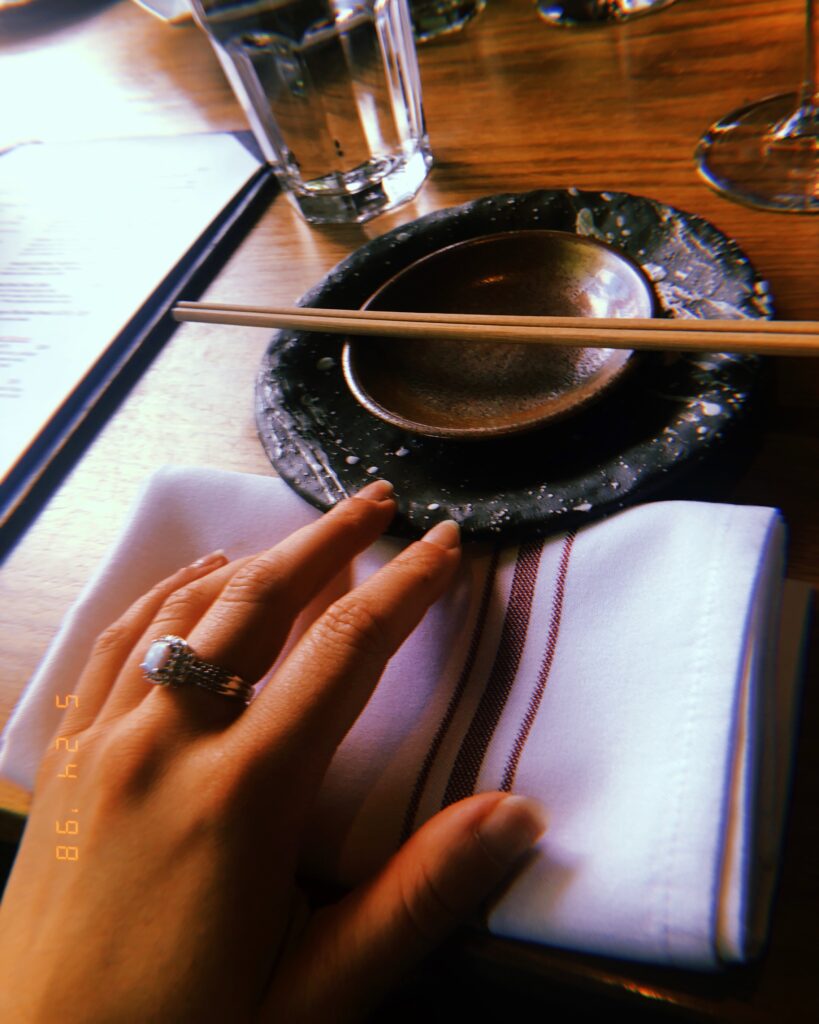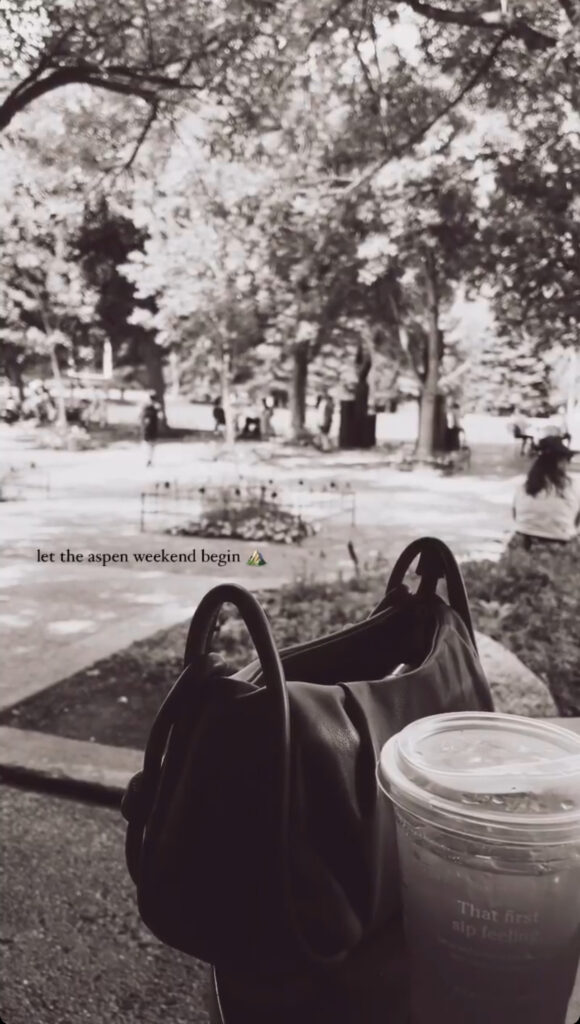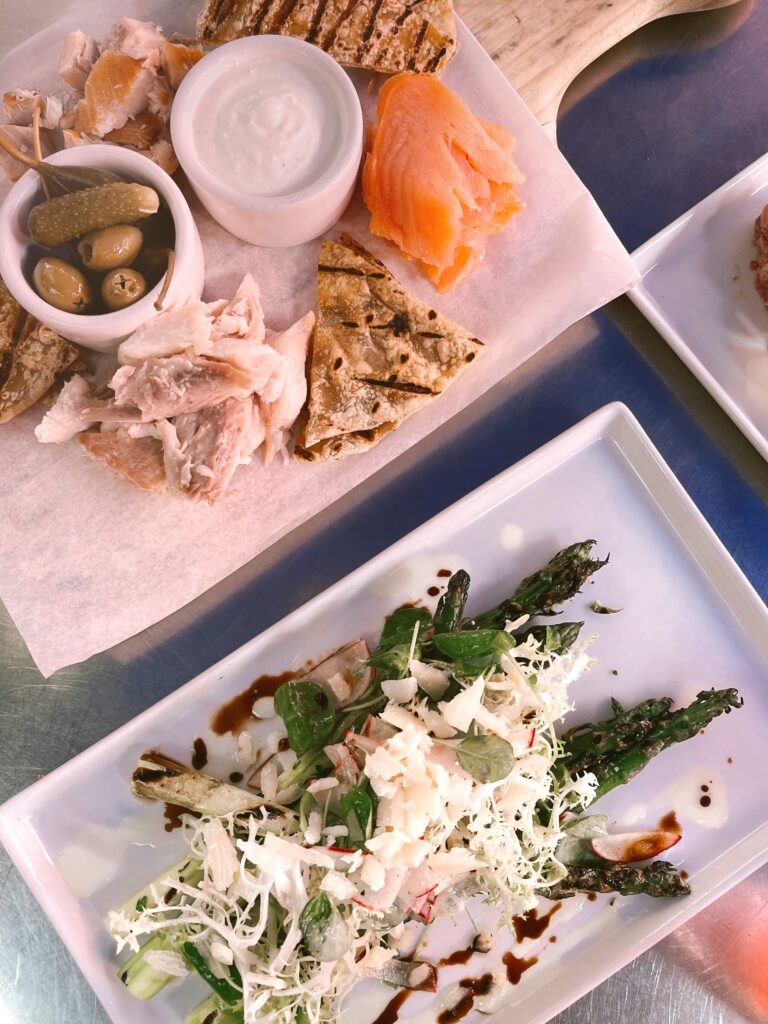
Nowadays, people are really struggling with their conversations.
I have a hunch it may be because the world has been living in social media land for quite a long time now and we’ve forgotten the art of communication. Especially face to face.
Now, when communicating with another human being face to face, there’s a whole bunch of factors and variables that come into play which, if I’m being honest, can intimidate the average homo sapien.
Body language, facial expressions, tone of voice, outside influences, etc., it’s not easy to be vulnerable without the shield of being behind a phone. But, that’s exactly why communication is an art.
It’s something that not all have mastered and is meant to be practiced…
Just like any other art form.
When I mention being an interesting conversationalist, that doesn’t mean you have to sound like you just came from Harvard, or use fancy words to sound more impressive.
It’s not about that at all.
But I do encourage you to expand your vocabulary and use words that are a little bit more enchanting than your typical everyday lingo. There are hundreds of thousands of words in the Oxford Dictionary after all, so why not try them out?
Nonetheless, the real objective of this blog post is to teach a little sumthin’ sumthin’ about how to be an interesting conversationalist and limit the number of boring conversations out there in the wild.
Sure, some are inevitable and not everyone will be your cup of tea, but hey, if we rally more people to actually give a shit about wanting to put effort into bettering their abilities to communicate, or picking up some great ways to lead the conversation…
Then we all win in the end.
I created this list, especially, with people in mind who naturally struggle to know what to say to others in social settings or get so nervous with their social anxiety that they freeze.
Or even more so, for those who want to have far more interesting conversations and be more interesting.
At the end of the day, all we have is each other. So, we might as well pick up a few new takeaways on how to connect with others better.
After all, everything starts with a conversation. So, we might as well learn how to make it a little bit more…memorable.
Or, at the very least, less miserable.
Let’s begin. You’re gonna love it, I promise.



Your Best Bet Is To Plan Ahead.
One thing I’ve found to be extraordinarily helpful when it comes to having conversations with any group of people is to plan ahead.
Whether you’re headed to a work party (yikes, sorry), your girlfriend’s family BBQ (very nice), meeting your in-laws for the first time (very nice!), or even your first day of class, it’s so helpful to get a sense of the different types of people you’ll be interacting with and plan topics of conversation ahead of time to whip out when necessary.
For example…
When a comedian is doing standup, they get a sense of the type of people in the audience, based on the demographic or state/country they’re performing in, and incorporate jokes that are relevant to the audience they’re performing to.
So in this case, get a sense of the types of people you’ll be talking to and have 3-5 topics ready to ask and/or talk about. And if it’s a particular topic (sports, world news, crypto, cooking, anything), then do a little bit of research ahead of time to be able to kick off or keep up with the conversation.
Bonus points if you can throw in a fact or figure…
I’ve learned that having a conversation is like preparing for an exam. If you do enough research ahead of time and prepare yourself with the material, then no matter the question, you’ll have the tools and preparedness to answer it to the best of your abilities.
It’s all about the preparation. It’s hard to add your two cents to a conversation if you know nothing about the topic.
Take Charge and Lead The Conversation.
Oh god, the amount of people who assume the other person is meant to lead the conversation and just sit back and relax and wait to answer the questions given to them is shocking.
And explains people’s poor conversation habits, don’t you think?
One thing I recently learned is that the majority of people don’t feel the need to lead the conversation and just wait to be talked to…
Meaning…
They just stand, stare, and react, rather than think and ask.
I was shocked to figure that out and never thought about it like that before. I always assumed that people who float in the abyss of a conversation maybe just don’t know what to say, which could also be true.
What does leading the conversation exactly mean? Simply put, initiating the conversation and then leading the course of the conversation.
It’s a lot of work and takes practice to come off naturally, but this will get you super bonus points in the long run, especially when networking…remember that.

Body Language & Eyes, Baby.
Seriously, the eyes never lie, so even if you’re bored out of your mind, keep your eyes lookin’ alive.
There’s honestly nothing more soul-crushing than conversing with someone you’re interested in, and they’re clearly zoned out.
It’s not cool, or kind.
Same with your body language. Even if you maintain the conversation or try to act engaged, if your body language says otherwise, aka eyes wandering around the room or slouched over, then you’re indicating that your interest in conversing is at a low.
So what should you keep in mind, you ask?
- Maintain eye contact and nod when appropriate (it shows active listening).
- Don’t get distracted by people across the room or walking by and start a conversation with them in the middle of your other conversation (so rude).
- Even if you’re utterly bored, try not to yawn. It doesn’t feel good to see that.
- Try not to stand too close, it’s weird.
I’ve practiced looking into a mirror many times to practice my facial expressions and body language. Sometimes how we imagine we look or present ourselves isn’t exactly what’s coming through. So there’s no shame in practicing, the best do!
Be Genuinely Curious.
This is such a weird one to write about, but I think it’s worth mentioning.
You never know who you’re going to encounter and how they may change the course of your life, so no matter who you’re talking to, there’s always something to learn or discover.
Next time you’re at an event or a group gathering, challenge yourself to be open to whoever you encounter. I promise you, we all judge each other, make quick assumptions, and write people off before we get to know them.
By being genuinely open and curious about new people I encounter, I befriended people that I NEVER in a million years would’ve thought I would have anything to encounter.
With that, what’s actually most important about indulging in curiosity is that people will naturally gravitate towards you and instantly find you more interesting.
Odd right…such a simple thing and it automatically improves your quality of conversation?
Yes, absolutely. It’s my secret weapon.
It’s an unfortunate truth, but…
- Most people having conversations don’t actually care, they’re just going through the motions.
- A lot of people out there don’t feel listened to.
- People are craving to be heard.
So why not be the change and engage in more meaningful conversations?
By staying open and sparking conversations with people I otherwise wouldn’t think to with, I’ve quickly learned that everyone has an interesting story to tell and we all have more in common than you could possibly imagine.
So, the moral of the story?
Be open and genuinely curious about people and the world around you.



“Tell Me More”
Ahh, the best three words you could possibly say in a conversation.
There is not one person on the planet that doesn’t love being listened to.
So, if you insert these three little words into your next conversation and give the other person room to respond, I promise you, that person’s guide will lower and you’ll have them locked in.
And, it’s a great way to stall if you get nervous and have no idea what to say or how to respond to a question or comment. So next time you’re in a pickle or your mind goes blank, just say…
“That sounds interesting, tell me more”.
I guarantee you’ll quickly become that person’s new favorite person – it happens to me all the time, it’s wonderful.
Plus, instead of being one of those a**holes that pretend to know about a particular topic and try to make up bullshit to “not look dumb”, instead, just graciously admit you don’t know anything about that topic and ask a couple of questions about it.
No one will judge you for not knowing, but they will if they think you’re pretending to. Which is weird anyway, so don’t do it.
I promise you, admitting you don’t know something automatically adds humility and shows that you’re willing to learn something new. Pretending to know is just going to trap you.
QUICK DISCLAIMER:
Some lovely people out there can’t tell the difference between your genuine interest and if you’re just making conversation, especially for the ladies – trust me, I’ve been there.
So, be careful with the amount of time you spend talking to particular people, AKA, have an exit strategy, if need be.
Make It About Them.
When I’ve spoken to people about their social anxiety and concern with having conversations with others, the one thing they mention is they feel like all the attention is on them and they can’t help but quiver under the pressure.
If you’re someone who struggles with social anxiety, this is for you. Do this by putting the attention on the other person by asking them questions.
This way, you don’t have the time to microanalyze yourself nor feel the need to share much about yourself, unless you want to, of course. By asking questions and by putting the attention of the conversation onto someone else, it takes the pressure off of you.
This is especially for those in jobs that require them to “mingle”. Ugh, what a torturous thing.
Next time you’re at a social function, especially work-related, this is a great game plan to keep the attention off of you while still engaging in conversations with necessary and unnecessary people.
And the best part?
People will love talking to you, especially knowing you’re someone interested in learning about someone rather than only talking about yourself.
It’s a win-win.

When In Doubt, Compliment.
Oh boy, this is my favorite way to save myself from a totally awkward encounter.
Whether you’re waiting in line with someone you barely know or ran into someone you’re familiar with while out and about, when in doubt, give a compliment. A specific compliment is best.
If you’re struggling with what to compliment, say something about their hair – my go-to is to tell someone their hair is looking extra fabulous, literally anyone, not just the ladies.
Or, another good one, tell them they look great and look like they’re glowing.
It may be shocking, but most people never get complimented, especially wholeheartedly. So throw out a compliment to the people you admire, or even strangers, why not? It’ll never hurt.
And, it’ll leave a wonderful sparkle in their eye and it’ll be because of you, and they’ll always remember you.
QUICK DISCLAIMER:
Don’t say that if they genuinely look like a wreck.
If someone you know looks like they’re having a bad day, skip the compliment and just ask them how their day is going and lean into that. If you’re uncomfortable with that, just say your hellos and how are yous, then say you’re in a rush and have to go.
If you want to see them again, tell them you’ll text them to get together soon. If you have no intention or interest in seeing them, don’t say that.
Just say ciao and keep it moving.
Be a Storyteller.
Everyone loves a good story.
Everything mentioned prior to this section is all about the logistics of being an interesting conversationalist, but when it comes to storytelling, this is what differentiates the good from the great.
Now, verbal storytelling is an art all in itself – it takes a level of engagement, tempo, rhythm, reading the room, and giving the punchline at the right time. But, at the end of the day, it doesn’t have to be so complicated.
What matters most is that the story you tell has a solid ending and is relevant to the topic of conversation.
We’ve all been there when someone decides to not only interrupt the flow of the conversation but give a long and exhausting story which by the end of it makes no sense for why it was brought up in the first place and isn’t even relevant to what’s being talked about.
Those moments are so funny, but don’t be that person…
Do be the person who shares interesting stories from your life to elevate the conversation. You never know what you may have in common with someone if you neglect to incorporate some personal touches into your conversations.
You don’t have to tell them all about your childhood (unless it makes sense and you want to), but conversations allow us to drop our guard and find common ground with others.
Or at the very least, have a cool conversation with someone you otherwise wouldn’t get the chance to talk to.
And you never know, the more engaged you are in a conversation, the better chance you have to have it lead you to something you weren’t expecting…



The author’s final thoughts…
I love writing about how to better people’s interactions with others, it’s a joy.
People are the most important part of our world, but sometimes we forget how to talk to each other. And at the end of the day, learning how to better our conversations is key to bettering our relationships.
Conversating is an art and to be honest, not everyone’s great at it, but that’s okay. I hope 8 of my methods above can help you become the interesting conversationalist that you’ve been dreaming of becoming.
Love,
Anastasiya